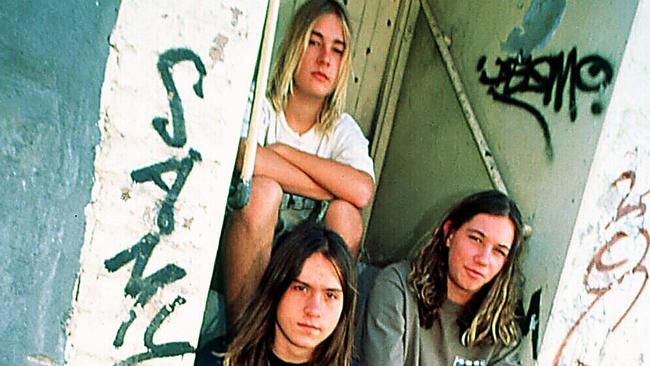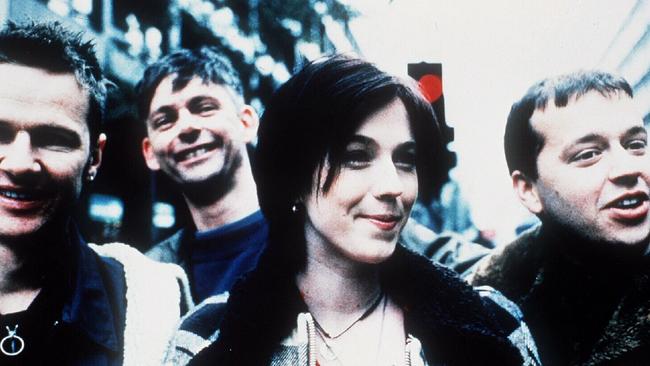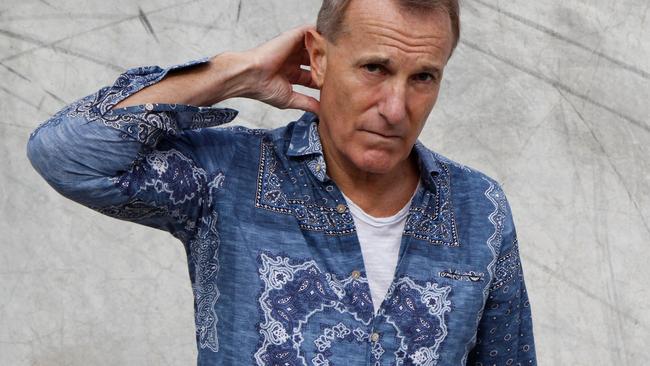Meet the famous musicians who hate their own big hits
They write the songs, but that doesn’t necessarily mean they love them. These are the popular Aussie and international artists who hate their own songs.

Music
Don't miss out on the headlines from Music. Followed categories will be added to My News.
They write the songs the whole world sings, but that doesn’t necessarily mean they have to like them to. Here’s some artists who either disown their big hits, have learned to love them or sing them through gritted teeth.
THE CHURCH – THE UNGUARDED MOMENT
The Australian band’s first hit, Steve Kilbey has been open about his dislike of the 1981 single. He started playing it regularly when he did 80s package tours a few years (“for the money”) where artists are obliged to just play their biggest hits then clear the stage for someone else to do the same.
“I was never in love with it,” Kilbey told News Corp of The Unguarded Moment. “It was a hit, a load of people like it. It brings them pleasure when I sing it. But I don’t really want to sing it. But in the end to sing that one song for three minutes I might earn what some people might earn in two weeks being a waitress. So you can’t be too curmudgeonly about it. If (experimental producer) Brian Eno rings me and says come and do an installation where we f--- around with white noise I’d much rather be doing that than singing The Unguarded Moment. But that hasn’t happened yet.” Kilbey also isn’t massively fond of The Church’s other big hits, including Almost With You and Under the Milky Way, but is more comfortable playing them. “They were songs I wrote. If someone said go out and play your favourite songs you’ve written they’re not the ones I’d choose to do. They’re pop songs the crowd like.”

SIMPLE MINDS – DON’T YOU (FORGET ABOUT ME)
The Scottish band didn’t write their biggest hit. It was penned by Keith Forsey with them in mind — when they passed on the song it was offered to Bryan Ferry, Corey Hart and Billy Idol (who’d later release his own version). They finally agreed to record the song – it hit No. 1 in the US – and remains in their live sets to this day and in time they now enjoy playing it. “There’s just something about the energy in that song,” Jim Kerr told News Corp. “It surprises us because we didn’t write it and we recorded it with an attitude of ‘Let’s just get this thing done, it probably won’t do anything anyway’. To this day it’s still such a surprise that it went on to do what it did do.”
FRENTE! – ACCIDENTALLY KELLY STREET
Peak perky, this took Melbourne band Frente from the independent scene into the mainstream in 1992. Singer Angie Hart loathed the song, its cheesy, colourful video and it’s success (and parodies) helped accelerate the demise of the band. While Hart would sing it reluctantly at shows and then ignore requests for it after it was dropped from the set, since Frente’s reunion in the last five years she’s made peace with the song that most people associate with the band. “It was so immature of me,” Hart told News Corp in 2014. “I despised other bands that wouldn’t play songs they didn’t like. You wrote it, it exists, people like it, it’s too bad. We’ve definitely made our peace, me and Kelly Street. But it wasn’t so much the song, just the things attached to it by the time I decided I didn’t like it. It changed my enjoyment of being in the band. It changed our live shows, we got a larger audience but they knew less of our music. You’d resent people calling out for that one song and then basically leaving after we played it, basically. That song was the moment everything shifted.”

PAUL KELLY – TALK/MANILA
Not just a song (although he hates his first hit Billy Baxter) but if Paul Kelly could delete his first two albums from 1981 and 1982 respectively, from history he would. And he’s tried his best. They’re not on any streaming platforms, videos from the era have been removed from You Tube and original vinyl or CD copies (they were reissued in 1990 for the final time) of the albums sell for over $150 each on eBay if you can find them. “If I could I’d like to get all the copies of those records and put them in a big hole and burn them,” Kelly said on the Stories of Me documentary. In his recent Kelly biography Stuart Coupe says of the two albums “Paul has done everything in his power to eliminate the existence of Talk and Manila. Paul wants the world to believe that his career began … with the release of (1985’s) Post.” Record company boss Michael Gudinski gave Kelly the rights to the two albums in a generous move, meaning he now controls their fate. “He didn’t want those two albums around,” Gudinski told Coupe. “He just wanted them dead. But they’re a part of his history …” Kelly told Coupe of his first two albums. “I don’t like the songs or the singing on them. They’re embarrassing to listen to.”
JOHN FARNHAM – SADIE THE CLEANING LADY
Even Farnham’s manager at the time knew Sadie was annoying, but figured it was catchy enough to launch ‘Johnny’ Farnham back in 1967. And indeed Sadie became the highest-selling Australian single of the 1960s. Since his career resurrection in the mid 80s, Farnham rarely plays any of his early hits live – nixing classics like One, Comic Conversation, Raindrops Keep Falling On My Head or Don’t You Know It’s Magic. But he can be coaxed into a truncated version of Sadie at live shows if the requests are loud enough. Last year in Mount Isa he changed the chorus to “Sadie the f---king cleaning lady” before noting, correctly, it’d end up online. However a lot of it is theatre, with Farnham admitting in 2017 “I actually don’t mind singing the song. I love the song, if it wasn’t for the song I wouldn’t be here. It’s just not the best song I’ve ever recorded …”

AUSTRALIAN CRAWL – HOOCHIE GUCCI FIORUCCI MAMA
James Reyne wrote this for the Crawl’s wildly-popular debut album, The Boys Light Up, in 1980. For years he refused requests to play it when he played Crawl classics in his solo shows, but was talked into a few years ago, partly by his mate Daryl Braithwaite who preached the give the fans what they want policy. But Reyne is always quick to introduce the song and let people know he’s playing it under duress. “I always refused to play this song because it’s deeply, deeply s--thouse,” Reyne said a few years back. “Lyrically, whoever wrote it should be shot, and that person is me. It’s cloying and uncomfortable and weird. It is a pretty crappy song frankly. Some of it is actually unsingable.”

SILVERCHAIR – TOMORROW
It’s the song that launched Silverchair – and probably paid for a house or two – but it’s the one Daniel Johns would disown even when Silverchair were still going. Released in 1994, while the band split in 2010, they stopped playing it live in 1999. Written when Johns was 14, he wanted his songwriting to move forward – indeed it’s telling that five years into their career Silverchair had outgrown Tomorrow. The band have consistently refused to reunite, despite hefty financial offers, while Johns’ post Silverchair work is exploring electronics. “When I say I wouldn’t reform Silverchair even at gunpoint or for a million dollars it sounds like I’m dissing the band. I’m not,” Johns told News Corp. “I love Silverchair, I’m super-proud of the band, it’s just that I did it and it’s done.”

HEART – ALL I WANNA DO IS MAKE LOVE TO YOU
The US band’s biggest hit just turned 30, but it has long been jettisoned from their live shows. Written by Mutt Lange (Shania Twain’s ex) it was given to Don Henley, who passed on it, and with a gender-flip, wound up handballed to Heart. The song is about a desperate woman with an infertile husband who picks up a hitchhiker for the sole purpose of impregnation. The lyrics detail a post-coital note (“I am the flower, you are the seed, we walked in the garden, we planted a tree”) and end with “what he couldn’t give me was the one little thing that you can”. In concert, Heart’s Ann Wilson tried to flip the gender of the song so they’d hate it less. “At first that was fun, after a while it got kinda gross. I stopped appreciating it once the novelty wore off,” she told News Corp. “It’s pretty blatant. There’s blatant and then there’s dumb blatant. I’m not a prude, but I like good lyrics, I don’t think they’re very good lyrics. As a singer I’m not very fond of it, I just really cannot relate to the words.”
cameron.adams@news.com.au




